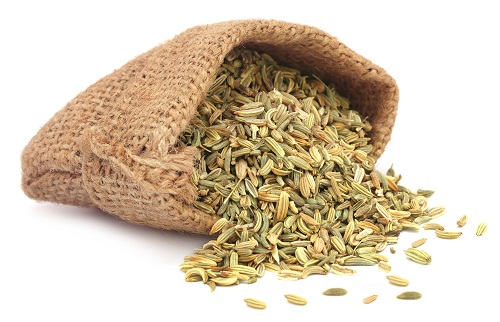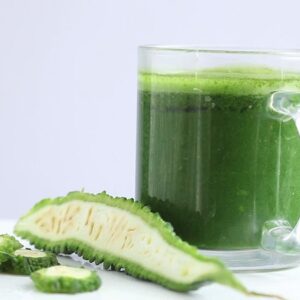Most people won’t admit it, but at some point in their lives, approximately 90 percent of people are affected by constipation. At least 60 percent of these are constipated chronically. Medicines and treatments can harm the body. To cure and prevent constipation, it is best to follow home remedies for constipation. If you have gastrointestinal disorders or bowel syndrome, be careful and disciplined. If you have got symptoms of constipation, don’t panic, just follow these simple home remedies for constipation.
Simple tips on how to avoid Constipation:
No one likes to think about constipation, let alone talk about it, but most people have it at one time or another. Approximately 40 million people in the US have it quite often. So if you’re dealing with problems with the tummy, you’re not alone. Mostly it is of shorter duration and simple changes can help your digestive system run smoothly again. Changes in diet and lifestyle such as what you eat, drink and exercise will help to alleviate and prevent constipation. Here are some precautions you can take:
- Drink plenty of water and fluids, including clear soups: Drink plenty of water and other liquids and juices from fruit and vegetables to help prevent constipation. Liquids add fluid and bulk to the colon to the stools, making intestinal movements softer and easier to move.
- Eat More Fibre: Fiber helps to form soft, voluminous stools. It can be found in many vegetables, fruits, whole grains and vegetables such as lentils, beans, peas, and chickpeas. but make sure you add a little bit of fibre to your diet to gradually get your body used to it.
- Time: Our hectic schedules keep us in a hurry all the time we don’t pay attention to the needs of our body, especially the urge to have a bowel movement. Giving yourself sufficient time in the toilet will also ease your constipation problems.
- Get Enough Exercise: Regular exercise keeps your digestive system healthy and active. You don’t have to be a big sportsman or athlete. Just walking every 20/30 minutes will help a lot.
- Before taking laxatives, consult your doctor: Taking laxatives on your own for a while will make your digestive system habitual to it. This will prevent you from naturally having bowel movements when you stop taking the pills. So whenever you have a significant or prolonged change in bowel habits, check with your doctor.
- Consume probiotic supplements.
- Try out a low FODMAP diet.
- Consume caffeinated drinks like coffee.
- One can try out some herbal laxatives too.
- Prunes are called nature’s remedy for constipation.
Best Home Remedies For Constipation:
If you don’t want to use store-purchased medicines to relieve constipation, you can try a few home remedies for constipation. Constipation occurs when passing a bowel movement is harder than usual. It’s usually not harmful and happens to everyone in their lives at some point. Relief can be in your home just around the corner, so take a look before heading to the doctor.
1. Prune Juice:
Prunes and prune juice are often praised as one of the best home remedies for constipation by nature – and for a good reason. Prunes contain natural laxative sorbitol in addition to fibre. It is a sugar alcohol with a laxative effect. Studies have shown that prunes can be better than fibre. So if you are constipated and thinking of what to take for constipation, prunes may be the easiest available natural solution. Prunes are rich in fibre, making the stool voluminous and easy to pass. They also contain dihydroxy phenyl isatin, which speeds up the function of the colon. There are also important vitamins and minerals, and antioxidant properties.
How To Consume:
- Drink a glass in the morning and a glass in the evening.
- Instead of drinking the juice, you can also eat some prunes.
- Doing this for a day will relieve constipation immediately.
- Let the first glass of juice pass through your digestive system.
- It works well for one in the morning and for some in the evening.
- If there is not enough gap, excessive prune juice can cause diarrhoea.
2. Lemon Honey Water:
This is probably one of the best home remedies for constipation. Take some hot water, and add lemon juice and honey. Lemon is a stimulant for the digestive system and can help remove toxins. Honey cuts the sour taste, and some researchers think it’s a mild laxative. For two reasons, you can also use some salt instead of honey: salt is rich in magnesium, which promotes bowel muscle contraction, and secondly, it helps to flush toxins from the stomach and small intestine.
How To Consume:
- Warm some water and add approximately 1 teaspoon of lemon juice and half a teaspoon of honey or a pinch of salt.
- Drink this mixture for a week every day to relieve constipation.
3. Consume More Oil or Ghee:
Doctors suggest that you add more ghee or olive oil to your diet. Castor oil also works. It is an excellent laxative because it increases the movement of the bowels and helps them clean. Ghee lubricates the intestinal tract and helps to pass the faeces smoothly. If you don’t have ghee, you can use something else – which is oil!! It works on the same foundation as the ghee principle. So if you are wondering what to do for constipation, then doctors have recommended that you take on an empty stomach and a teaspoon of coconut or olive oil to relieve constipation.
How To Consume:
- Take a spoon full of oil on an empty stomach and wait for it to work its magic.
- Increase your intake of ghee or oil to prevent constipation.
4. Herbal Teas:
If you are wondering what is the best remedy for constipation, then you must try herbal tea. Herbal teas are natural laxatives and help to pass the stools more easily. They cause a certain amount of retention of water in the colon, which can easily pass through smoother stools. Molasses or honey can be added to help the laxative properties of the tea. Some of the best types of herbal teas to relieve constipation quickly are Green tea, black tea, and peppermint tea. Children can also take herbal teas if they are suffering from constipation.
How To Consume:
- Boil water on the stove and remove it. Add leaves or granules of herbal tea. Let it cool for a few minutes (maximum 30 minutes). Strain the tea and drink.
- To deal with constipation, have 3-4 cups per day.
5. Oatmeal:
You will receive 4 grams of fibre from a cup of traditional oatmeal. Like all high-fibre foods, oats contain a combination of insoluble and soluble fibre, but they are renowned for helping to reduce cholesterol and reduce diabetes risk. Oats make a perfect breakfast for you. Oatmeal offers the best of both worlds of fibre. Half a cup of dry oats contains 2 grams of insoluble fibre and 2 grams of soluble fibre. Insoluble fibres add bulk to the stools and help food pass through the stomach and intestines more quickly, while soluble fibres dissolve in water and form a gel-like material. The two fibre types work together to bulk up the stool, soften it, and make it pass easier. For an extra fibre boost, top with raspberries, or if you have an insatiable sweet tooth, try this peanut butter cup of oatmeal.
How To Consume:
- Have oatmeal for about 2 weeks to get rid of constipation.
6. Spinach:
Spinach is one of the best fibre-rich foods to treat any disorder of the digestive tract. You may not get super-strong forearms like Popeye, but having a cup of spinach juice daily would work as well to solve your problem with constipation. Greens like spinach, sprouts from Brussels and broccoli are rich not only in fibre but also in vitamin C, vitamin K, and folate. These greens help to add bulk and weight to the stools, making passing through the gut easier. One cup of cooked spinach has a fibre content of 4.3 grams, or 17 percent of the daily intake recommended. It is full of fibre (a cup of cooked spinach has 4g) and contains magnesium, a mineral that can help move stools, doctors say. Magnesium is often found in laxatives, but it is a less extreme option for most people to incorporate into their diet.
How To Consume:
- Try adding spinach to your diet to a quiche, soup or pie. It is possible to use raw baby spinach or tender greens for fibre to boost salads or sandwiches.
- Have your greens daily to avoid constipation.
7. Magnesium and Vitamin C:
Many constipated people have a magnesium deficiency. Magnesium citrate supplementation can be a natural and gentle laxative. Like any dietary supplement, I recommend that you take a small amount and gradually increase the amount until you have a soft, smooth bowel movement. If this is not enough, it may also be helpful to add vitamin C. A healthy adult can also generally take a magnesium supplement to promote bowel movements and benefit their overall health. Be aware that often nutrition alone cannot provide sufficient magnesium, as poor sugar-laden diets or chronic stress can inhibit production.
Magnesium citrate and magnesium milk have the same constipation relief mechanism. These compounds pull water into the intestines as they pass through your digestive system. The excess water softens the dried-out stool, creating pressure as well, resulting in muscle contractions pushing out the faecal matter.
How To Consume:
- Take 240 ml magnesium citrate liquid or 2 tablespoons milk of magnesia, water or juice.
- Mix in a glass of juice or water the magnesium citrate and drink it. Within a few hours, you will be relieved from constipation. If magnesium citrate cannot be found, you can also use magnesium milk to treat constipation.
- Mix with a glass of water 2 tablespoons and drink before going to bed.
- Drinking magnesium citrate once should help relieve constipated stool.
- For the milk of magnesia remedy, drink it before bedtime for a few days.
8. Apples:
Apples are rich in fibre that goes undigested through your intestines and promotes regular movement of the bowels. Apples also have another soluble pectin fibre that has laxative effects. It reduces the transit time of the colon, treats constipation, and also improves digestive health. In fact, one medium-sized skin-on apple (about 182 grams) contains 4.4 grams of fibre, which is 17% of the recommended daily intake. About 2.8 grams of this fibre is insoluble, whereas 1.2 Grams is soluble fibre, mainly in the form of pectin dietary fibre. In the intestine, pectin is fermented quickly by bacteria to form short-chain fatty acids that pull water into the colon, softening the stool and decreasing the transit time of the intestine.
How To Consume:
- They can be eaten entirely, juiced or in salads or baked goods.
- Pulpy apple juice is one of the best drinks you can take.
- Have an apple regularly to prevent constipation.
9. Triphala:
Triphala is a three-component churna–Indian gooseberry (amla), black myrobalan (harad), and Belliric myrobalan (baheda). This Ayurvedic formulation acts as a powerful natural laxative by enhancing digestive enzyme secretion and stimulating the contraction of the gastrointestinal tract’s smooth muscles. Scientific research on the advantages of constipation Triphala found that Triphala polyphenols inhibit the growth of unhealthy gut bacteria while promoting the growth of beneficial gut bacteria at the same time. Triphala is a herbal mixture that works for constipation effectively. It is considered to be a permanent constipation treatment.
How To Consume:
- Take 2 – 3 Triphala tablets with warm water before going to bed.
- Use this remedy for approximately 2 months.
10. Fennel:
Fennel is well known as a natural galactagogue (promoting the production of breast milk), but it is also very useful in the treatment of digestive and respiratory conditions. A rich source of volatile oils is fennel seeds; studies show that there are a total of 28 compounds in fennel seeds. Many of these oils promote gastric enzyme production as well as prevent the spread of unhealthy intestinal bacteria interfering with the digestive process. Fennel seeds are effective constipation home remedies. They also treat indigestion, the syndrome of irritable bowels, and bloating.
How To Consume:
- Roast a teaspoonful of seeds and add them to a glass of warm water for constipation, using fennel as a natural cure. Wait for a few minutes to drink the water and eat the seeds. This remedy is a mild natural laxative that ensures healthy intestinal movements.
- As to how much fennel tea is safe to drink, there is no recommended daily limit because fennel tea affects digestion; start with one cup at a time and see how your body reacts to it.
While many people prefer not to speak about their bathroom habits, it is essential for good health to identify your daily bowel patterns. It is necessary to remove toxins from the body to function at its best. Try these easy tips to get things moving if you’ve been struggling in this area, and don’t be shy to speak to your healthcare practitioner about your bowel movements. This area of the body also deserves support and care, so don’t forget about it! Do you think these tips were useful? Then please share them for the benefit of others. Also, share with us in the comments below your other tried and tested home remedies for constipation.
Disclaimer:
All the home remedies for constipation described above are assembled from the experiences of people around the world and hardly have any side effects, but as every individual is different if any reaction or problem occurs, then kindly discontinue the use and consult your doctor.
Frequently Asked Questions:
Question 1: What is Constipation?
Answer 1: Constipation is a common problem that many people experience. It is a health condition in which bowel movements occur less frequently than usual or consist of hard stools that are often painful or difficult to pass, or after bowel movements, the person experiences a sense of incomplete emptying. Regular movements of the bowel vary from individual to individual. For some people, it’s completely normal to pass stool twice a day, while for others, it’s the norm 3 times a week. The best way to understand if you are constipated or not is to note if there is any deviation from the routine emptying of the bowel.
Question 2: How does Constipation occur?
Answer 2: If you have less than 3 bowel movements in a week, it means you have constipation. It’s a common gastrointestinal problem where bowel movements are hard to pass.
- Constipation occurs when too much time is spent in your colon by the digested food. Then the colon absorbs too much water, making your stool hard and dry. If the stool is hard and dry, pushing the stool out of your body becomes difficult for your rectal muscles.
- Constipation is considered to be a symptom of different health problems rather than a disease on its own. If you have less than 3bowel movements in a week, you are considered constipated. If you have constipation, you may end up straining to pass heavy and dry stools, or you may be unable to empty your bowel.
Question 3: Who is prone to Constipation?
Answer 3: At some point, nearly everyone suffers from constipation. Some people, however, are somewhat more at risk than others, such as:
- Individuals 65 years or older.
- People who have just had surgery.
- Pregnant women.
- Women who have just given birth.
- People who lead a sedentary lifestyle.
- People who travel frequently.
- People with medical conditions like Parkinson’s disease, piles, multiple sclerosis, clinical depression, and cancer of the colon.
Question 4: What are the causes of constipation?
Answer 4: Various factors can lead to constipation, such as:
- Unhealthy and irregular eating habits.
- Eating tiny portions of meals.
- Not visiting the toilet when there is an inclination to do so.
- Lack of exercise.
- Dehydration or lack of sufficient water.
- Lack of dietary fibre-rich foods
- Stress.
Question 5: What are the constipation symptoms? How do you diagnose Constipation?
Answer 5: Some of the Constipation symptoms include, but are not restricted to,
- Hard and painful stools less than 3 times a week.
- Requiring laxatives more than 3 times a week.
- Stools that cause tearing and bleeding near the rectum.
- A feeling of incomplete emptying.
- Painful or distended stomach.
Diagnosis:
If constipation becomes chronic, visiting your family doctor or general practitioner is advisable. The doctor may suggest changes in diet and lifestyle. Constipation may also be a symptom of an underlying condition of health. The doctor may, therefore, recommend the following tests to rule out other conditions of health:
- Blood Tests: Blood tests can specifically identify problems associated with the thyroid, such as low thyroid.
- Sigmoidoscopy: In this test, your rectum and the lower part of your colon are examined by your doctor.
- Colonoscopy: This test enables your doctor to use a flexible, camera-equipped tube to examine the entire colon.
- Anorectal Manometry: This test enables your doctor to measure how the muscles you use to move your bowels are coordinated.
Question 6: What are Constipation complications?
Answer 6: Constipation complications may include: haemorrhoids or swollen veins in the anus: it can cause vein swelling in and around your anus while having a bowel movement if you frequently strain. In fact, chronic constipation may result in piles being developed.
- Anal Fissure: Tiny tears in the anus can result from acute straining to pass stools.
- Faecal Impaction: if you suffer from chronic constipation, hardened stool can accumulate and stay stuck in your bowel.
- Rectal Prolapse: This occurs when a small part of the rectum stretches and protrudes from the anus during bowel movements due to excessive strain over time.
Question 7: What are the other treatments for Constipation?
Answer 7:
- Medical Treatment for Constipation: Some laxatives may be prescribed for chronic constipation by the doctor. Medicines alone, however, are not the answer to ending constipation. It is suggested that you work with your doctor to adopt some healthy lifestyle habits, including healthy dietary habits for constipation resolution.
- Exercise: They help to move the stools out smoothly and quickly when the intestinal muscles contract easily. Exercises such as running, jogging, and swimming, can keep your digestive tract healthy. Yoga can help cure constipation, as can aerobics and brisk walking.









